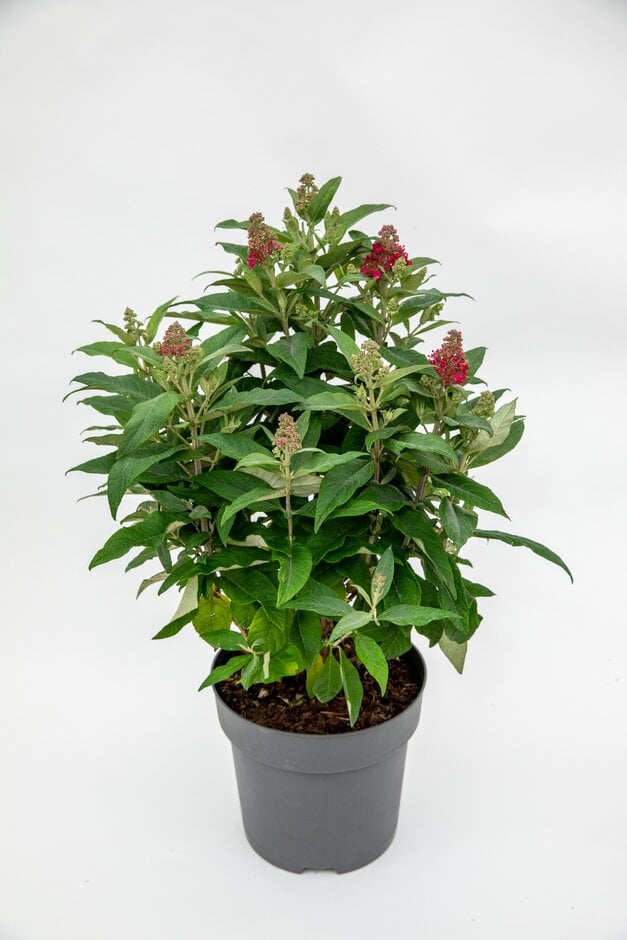Buddleja davidii Little Ruby ('Botex 006') (Butterfly Candy Series)
butterfly bush [Little Ruby]
A compact, bushy, upright deciduous shrub with narrow, grey-green leaves which are produced on arching branches. Cone-shaped clusters of small pink-red flowers appear from midsummer
Size
Ultimate height
0.5–1 metresTime to ultimate height
5–10 yearsUltimate spread
0.5–1 metresGrowing conditions
Moisture
Well–drainedpH
Acid, Alkaline, NeutralColour & scent
| Stem | Flower | Foliage | Fruit | |
| Spring | Grey Silver Green | |||
|---|---|---|---|---|
| Summer | Pink Red | Grey Silver Green | ||
| Autumn | Pink Red | Grey Silver Green | ||
| Winter |
Position
- Full sun
Aspect
South–facing or West–facing
Exposure
ShelteredDrought resistance
Yes Hardiness
H6Botanical details
- Family
- Scrophulariaceae
- Native to GB / Ireland
- No
- Foliage
- Deciduous
- Habit
- Bushy
- Genus
Buddleja can be evergreen or deciduous shrubs, occasionally trees or scrambling climbers with simple leaves and panicles of small, tubular fragrant flowers
- Name status
Trade
How to grow
Cultivation
Grow in fertile, well-drained soil in full sun or partial shade. See buddleja cultivation for more detailed advice
Propagation
Propagate from softwood cuttings in summer and hardwood cuttings in autumn
Suggested planting locations and garden types
- City and courtyard gardens
- Cottage and informal garden
- Patio and container plants
- Wildlife gardens
- Flower borders and beds
Pruning
Prune annually in early spring back to a low framework, pruning group 6
Pests
May be susceptible to aphids, capsid bugs, caterpillars, earwigs, figwort weevils, glasshouse red spider mite, leaf and bud eelworm, and mullein moth
Diseases
May be susceptible to honey fungus, fungal leaf spot, and virus diseases
Get involved
The Royal Horticultural Society is the UK’s leading gardening charity. We aim to enrich everyone’s life through plants, and make the UK a greener and more beautiful place.
